8 Foods That Are Good Sources of Vitamin D—and How to Add Them to Your Diet

Paola + Murray
Vitamin D is unique in the world of vitamins, since it's both a micronutrient and a hormone. As a micronutrient, it can be found in certain animal and fish products, but your body also manufactures its own vitamin D when directly exposed to the sun—which is why it's often called the sunshine vitamin.
Research keeps emerging about how beneficial vitamin D is to our health, says Roxana Ehsani, MS, RD, CSSD, LDN, a board certified sports dietitian and national media spokesperson for the Academy of Nutrition and Dietetics. We know that it plays an important role in many of the body's functions, including strengthening bones, supporting immune health, regulating cognitive function and mood, and even protecting against diseases like cardiovascular disease and Type 2 diabetes, but Ehsani says there is some evidence that having low levels may also impact one's likelihood of depression.
Related: Everything You Need to Know About Vitamin D
How Much Vitamin D You Need
Many people are low in vitamin D, as there aren't many food sources that contain high levels of the vitamin, and many of us aren't getting enough of the vitamin through sunshine, either. Experts recommend getting 800 IU of vitamin D per day, although it varies with age. You should aim to get the majority of your vitamin D through whole foods, but if there are gaps in your diet, supplementing is also a fine choice.
Be wary of over supplementing, though: more isn't always better. Because vitamin D is a fat-soluble vitamin, excess vitamin D isn't excreted in your urine and waste products like water-soluble vitamins—it's stored in your fat, which means taking in too much of it can cause it to build up in your system. Talk with your doctor if you're interested in getting your vitamin D levels checked and to learn more about how to healthfully add vitamin D to your diet.
Foods That Are High in Vitamin D
If you've been advised to add more vitamin D to your diet, here are some of the best sources.
Salmon
"Wild salmon has more vitamin D than farmed salmon," says Ehsani but she notes both types of salmon are good sources. One serving (3 ounces) contains 570 IU. And salmon doesn't need much work or seasoning to be delicious; you can make a quick and easy dinner by baking salmon in the oven with a little salt, black pepper, and lemon juice. Add some sweet potato wedges and broccoli alongside the salmon for a quick, balanced sheet pan dinner. Also try steaming salmon or using it in a main-dish salad.
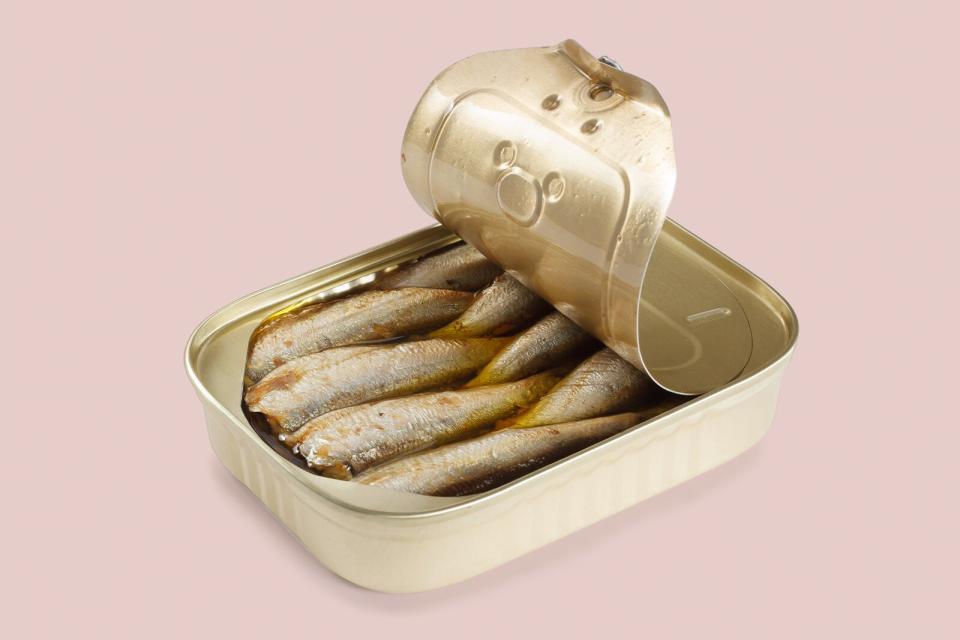
piotr_malczyk / Getty Images
Sardines
A serving of sardines offers 193 IU of vitamin D, that's 24 percent of your daily value. Canned sardines are readily available and very economical. Try adding them to your pizza or pasta for a burst of salty flavor, or for a snack, pair them with smashed avocado on crackers with a pinch of flaky sea salt.
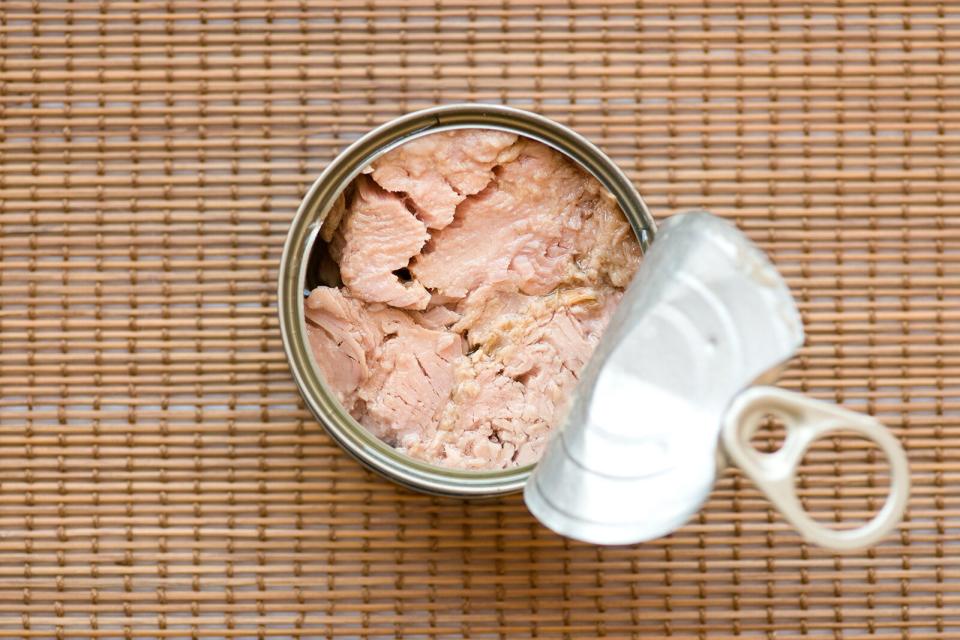
urguplu / Getty Images
Tuna
A milder tasting option for those who might not like the fishy flavors of sardines or tuna. One 3-ounce serving of tuna packs in 40 IU of vitamin D. And canned tuna is a relatively budget-friendly fish choice plus one you can keep on hand in your pantry. Make a batch of tuna-white bean salad for easy lunches for the week.
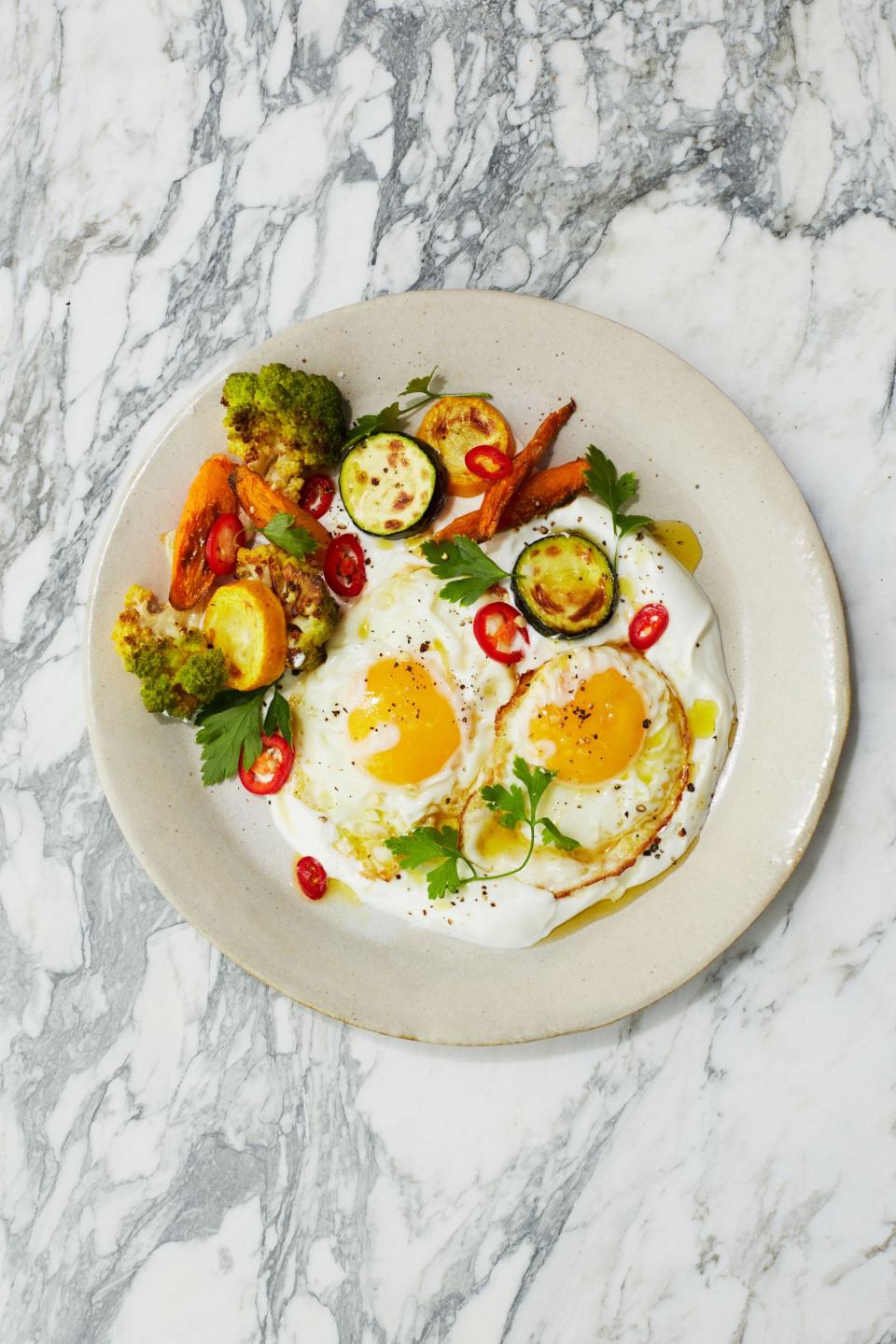
Marcus Nilsson
Egg Yolks
Hang on to your yolks! Egg yolks aren't the villainous cholesterol bombs we once thought. In addition to nutrients like choline, vitamin D makes egg yolks a valuable addition to your diet, In fact, the yolks contain most of the vitamins and minerals. While one yolk has about 5 percent of your daily value for vitamin D, chickens whose feed was enriched with vitamin D may produce eggs with three to four times that amount. Ehsani says that "although eggs are high in cholesterol, they still are a nutrient dense food, providing an excellent source of protein and vitamins and minerals."
There's no set recommendation on how many egg yolks you should or can be consuming each day, it really depends on how the rest of your diet looks. If you are consuming a diet rich in cholesterol—such as animal protein and saturated fat, like beef, chicken thighs and chicken skin, full-fat cheeses, and dairy products—Ehsani recommends that you lower your egg intake. But if your diet is quite lean on the animal proteins, and you are consuming a lot of lower-fat dairy products, consuming a whole egg per day should be OK. Our Breakfast Bowl with Yogurt and Vegetables is a great place to start.
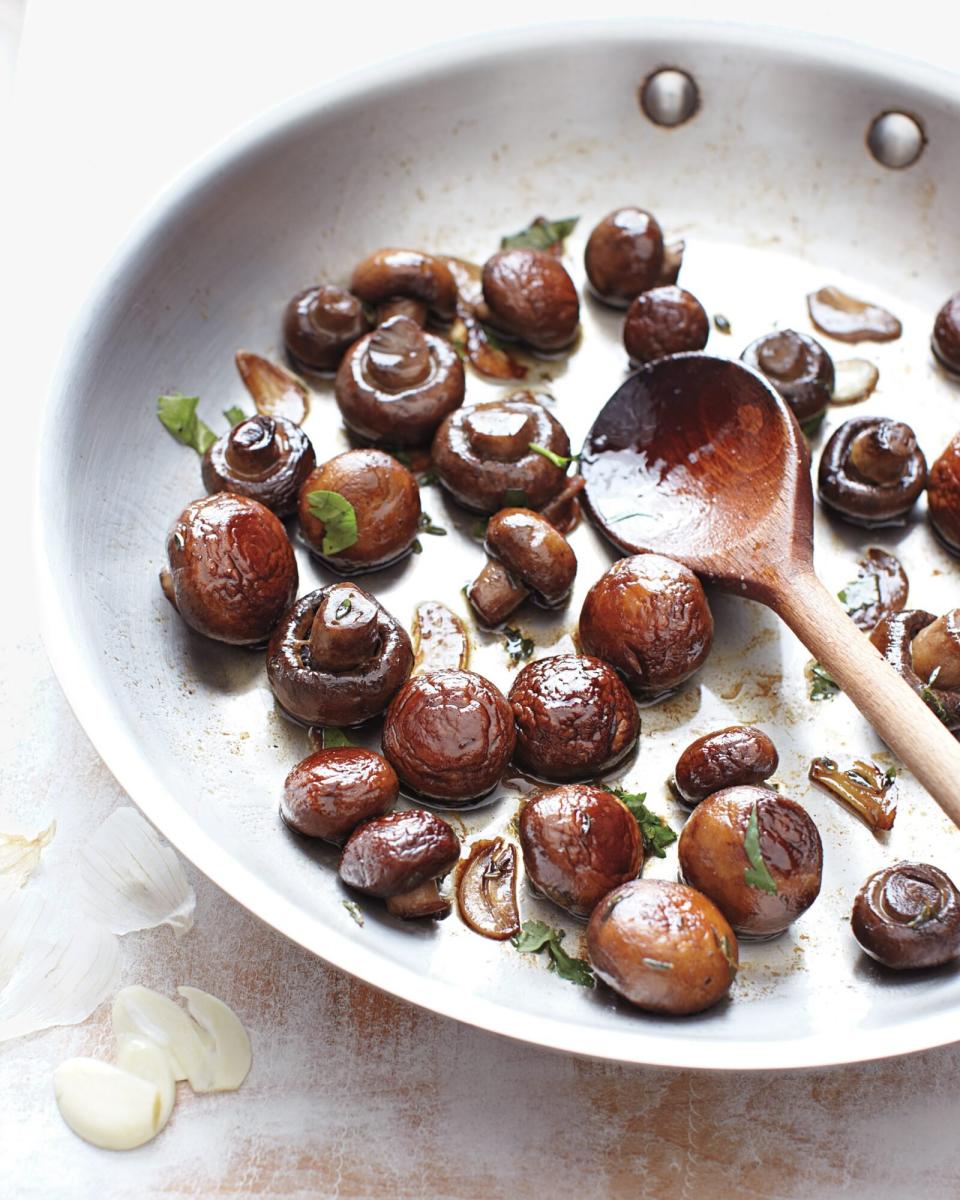
Johnny Miller
Mushrooms
The only non-fortified vegan sources of vitamin D that you can find in the produce aisle are mushrooms. Similar to humans, mushrooms create vitamin D when they're exposed to the sun, but it's a different form of vitamin D: vitamin D2, instead of vitamin D3. Some experts believe that vitamin D2 might not raise blood levels of vitamin D as much as vitamin D3. Still, mushrooms are worth adding to your diet for many other reasons: they're low in calories and high in fiber and B vitamins. Add grated mushrooms to meatballs or meat sauce, or just toss some portobellos on the grill at your next cookout.
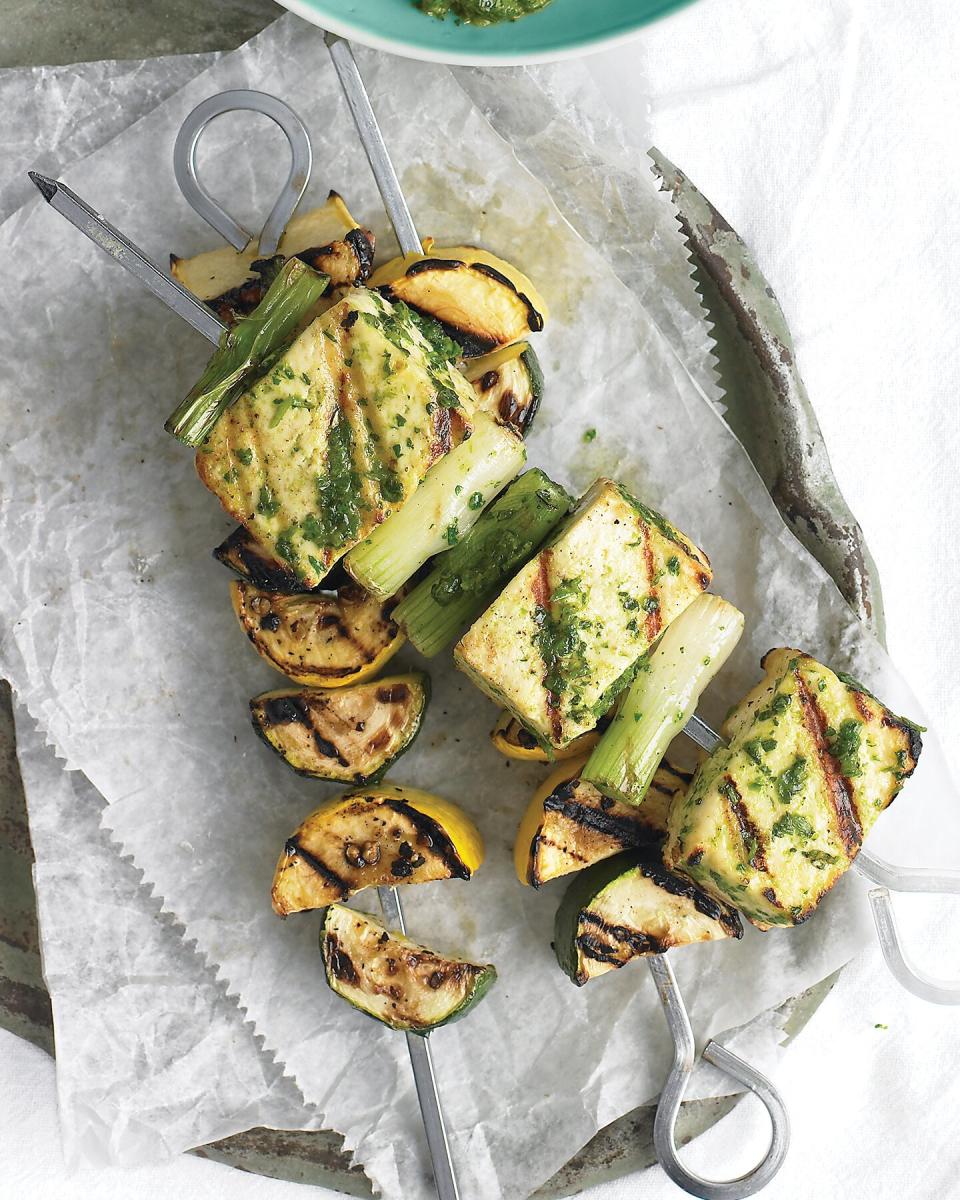
Tofu
Not all tofu is fortified, but those that are offer around 100 IU (2.5 micrograms) per 3.5-ounce serving. Tofu is a protein-packed food that's rich in many nutrients, including calcium, iron, and vitamin B12 as well as vitamin D. It's also a versatile ingredient that can be grilled, brushed with barbecue sauce and broiled until crispy, added to soup, and even scrambled.
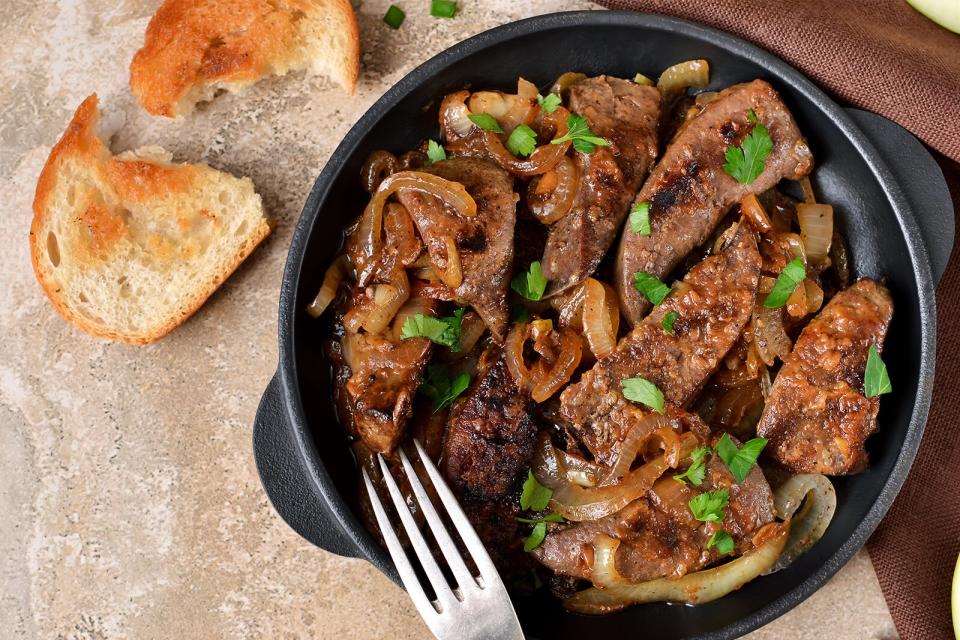
Getty Images
Beef Liver
Beef liver offers significant amounts of protein, essential amino acids, vitamin A, and iron. While it is high in cholesterol, enjoying it moderately adds variety into your diet. A 3.5-ounce serving of cooked beef liver contains about 42 IUs of vitamin D.

Bloxsome Photography / Getty Images
Fortified Foods
One of the strategies to improve Vitamin D status in the general population was to fortify commonly consumed foods like cereal, oatmeal, and dairy. Some orange juice is also sold fortified with vitamin D.
The Takeaway
Not a fan of any of these foods? Don't forget you can also get vitamin D by getting some sunshine. Set an alarm to soak up about 10 to 15 minutes of sun each day around noon, without sunscreen on, to get maximal absorption.

